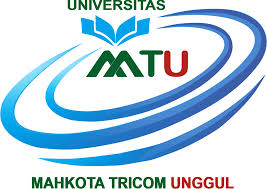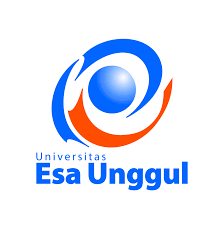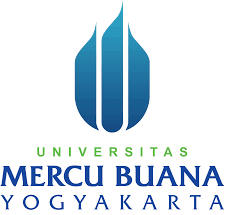Improving Agricultural Productivity through Field Schools: An Educational Management Approach in Desa Lau Solu, Kecamatan Mardingding, Kabupaten Karo
DOI:
https://doi.org/10.55927/fjmr.v4i10.513Keywords:
Farmer Field School, Educational Management, Agricultural Productivity, Technology Adoption, Desa Lau SoluAbstract
The increase in agricultural productivity in Indonesia, particularly in rural areas, requires an integrated approach between agricultural extension and education. This article examines the implementation of the farmer field school model that integrates educational management in Desa Lau Solu, Kecamatan Mardingding, kabupaten Karo, to enhance farmers' skills. This research uses a case study with interviews of 50 farmers, observations, and program documentation. Desa Lau Solu, Kecamatan Mardingding, kabupaten Karo has 250 hectares of agricultural land and an annual rainfall of 2,400 mm. Before the program, 45% of farmers were aware of balanced fertilization techniques, and 30% used superior seeds. After attending the extension program, 60% of farmers reported an increase in corn yields by 20-25%. Educational management helped 50% of farmers adopt new technologies, and 55% actively participated in farmer groups. This program improves the productivity and well-being of farmers.
References
Anderson, J. R., & Feder, G. (2004). Agricultural extension: Good intentions and hard realities. The World Bank Research Observer, 19(1), 41–60. https://doi.org/10.1093/wbro/19.1.41
Bachtiar, E. E., et al. (2025). Penyuluhan pertanian: Pendekatan, metode dan dampaknya terhadap pembangunan pertanian dalam mendukung swasembada pangan. Journal of Sustainable Agriculture Science, 3(1), 1–13. Retrieved from https://jurnal.polbangtanmanokwari.ac.id
Davis, K., Swanson, B. E., Amudavi, D., & Adegbola, P. (2010). In-service education and training of agricultural extension personnel: A review of concepts and approaches. Journal of Agricultural Education and Extension, 16(3), 271–292. https://doi.org/10.1080/1389224X.2010.493265
Feder, G., Murgai, R., & Quizon, J. B. (2004). Sending farmers back to school: The impact of farmer field schools in Indonesia. Review of Agricultural Economics, 26(1), 45–62. https://doi.org/10.1111/j.1467-9353.2003.00161.x
Haryanto, T., Wardana, W. W., & Basconcillo, J. A. Q. (2023). Does sending farmers back to school increase technical efficiency of maize production? Impact assessment of a farmer field school programme in Indonesia. Economic Research-Ekonomska Istrazivanja, 36(3), 2218469. https://doi.org/10.1080/1331677X.2023.2218469
Irvandika, H., & Suciati, S. (2024). Impact of Farmer Field School on productivity and sustainability of maize farming: Case study in Jember, Indonesia. Agricultural Systems, 42(2), 75–88. https://doi.org/10.1016/j.agsy.2023.103043
Mariyono, J., Waskito, J., Suwandi, Tabrani, K., & Latifah, E. (2021). Farmer field school: Non-formal education to enhance livelihoods of Indonesian farmer communities. Community Development, 52(2), 153–168. https://doi.org/10.1080/15575330.2020.1852436
Sulaiman, R. V., & Hall, A. J. (2006). Extension policy analysis in Asian nations. In Changing Roles of Agricultural Extension in Asian Nations (pp. 1–16). https://doi.org/10.1007/978-1-4020-4261-8_1
Van den Ban, A. W., & Hawkins, H. S. (1996). Agricultural Extension. Blackwell Science. ISBN: 978-0632037171
Braun, A. R., Duveskog, D., & Gallagher, K. (2006). Demystifying Farmer Field School Concepts. Journal of International Agricultural and Extension Education, 13(1), 51–61. https://doi.org/10.5191/jiaee.2006.13105
Bertsche, F., & Ruf, F. (2021). Agricultural extension and farmer behavior in Indonesia: Evidence from a large-scale intervention. Agricultural Systems, 187, 102965. https://doi.org/10.1016/j.agsy.2021.102965
Caprara, G. V., & Zimbardo, P. G. (2004). Personalizing politics: A congruency model of political preference. American Psychologist. https://doi.org/10.1037/0003-066X.59.7.581
Diener, E. (2000). Subjective well-being: The science of happiness and a proposal for a national index. American Psychologist. https://doi.org/10.1037/0003-066X.55.1.34
Haerani, S., Parmitasari, R. D. A., Aponno, E. H., & Aunalal, Z. I. (2019). Moderating effects of age on personality, driving behavior towards driving outcomes. International Journal of Human Rights in Healthcare. https://doi.org/10.1108/IJHRH-08-2017-0040
Lusardi, A., Mitchell, O. S., & Curto, V. (2010). Financial literacy among the young: Evidence and implications. National Bureau of Economic Research, 358–380. Retrieved from https://www.nber.org/papers/w15352.pdf
Sabri, M. F., & MacDonald, M. (2010). Savings Behavior and Financial Problems among College Students: The Role of Financial Literacy in Malaysia | Sabri | Cross-cultural Communication. Crosscultural Communication. https://doi.org/10.3968/j.ccc.1923670020100603.009
Amrullah, E. R., Takeshita, H., & Tokuda, H. (2023). Impact of access to agricultural extension on the adoption of technology and farm income of smallholder farmers in Banten, Indonesia. Journal of Agribusiness in Developing and Emerging Economies, 15(3), 531–547. https://doi.org/10.1108/JADEE-06-2023-0143
Van der Meer, J., Karunarathna, H., & Wijesundara, N. (2022). Agricultural Extension and Its Role in Community-Based Natural Resource Management: The Case of Sri Lanka. Journal of Extension, 60(3), 45-58. https://doi.org/10.34051/je.2022.16
Published
Issue
Section
License
Copyright (c) 2025 Lita Nasution, Srie Faizah Lisnasari, Riduan Sembiring, Isthifa Kemal, Dedi Holden Simbolon

This work is licensed under a Creative Commons Attribution 4.0 International License.

































